Understanding Meraki Cloud-Managed Networking for Enterprises
Quick Listen:
Picture an enterprise network so streamlined that managing it feels as effortless as adjusting your phone's settings. No tangled cables, no endless calls to IT specialists just a unified dashboard that puts Wi-Fi, security, and performance at your fingertips. This is the promise of cloud-managed networking, and Cisco Meraki is at the forefront, transforming how businesses tackle the complexities of modern connectivity. For organizations juggling remote workforces, IoT integration, and stringent security demands, Meraki's solutions offer a lifeline, delivering scalability and simplicity in an increasingly digital world.
The Rise of Cloud-Managed Networking
Since its founding in 2006 in Mountain View, California, Cisco Meraki has evolved from a visionary startup to a key division of Cisco Systems. Its goal remains clear: to untangle the complexities of enterprise IT. In 2007, Meraki launched its Free the Net initiative in San Francisco, installing gateway devices in areas like the Lower Haight to provide free internet access and distributing repeaters to expand coverage. By October 2007, the network had served 20,000 unique users and transferred five terabytes of data, primarily in the Mission District, showcasing the power of cloud-based connectivity. Now, Meraki's technology underpins enterprise networks globally, from retail to education, with an emphasis on ease, security, and growth.
Cloud-managed networking is no fleeting trend it's a cornerstone of modern IT infrastructure. Unlike traditional on-premise systems, which demand expensive hardware and constant maintenance, Meraki's cloud platform centralizes control. IT teams can oversee networks from anywhere, managing everything from a single office to a worldwide network of sites. This adaptability is critical for businesses navigating hybrid work models and surging data demands, offering a solution that's as dynamic as the enterprises it serves.
Trends Driving the Shift
The move to cloud-based networking is reshaping enterprise IT. With remote work now a mainstay, businesses require networks that support employees wherever they are home offices, co-working spaces, or global branches. Meraki excels here, providing reliable connectivity that keeps distributed teams in sync. The proliferation of IoT devices, from smart sensors to connected cameras, adds further complexity. Meraki's platform seamlessly integrates these devices, ensuring they enhance operations without compromising performance or security.
Scalability is another key driver. Today's enterprises need networks that can expand as quickly as their goals. Whether a retail chain is launching new stores or a university is adding facilities, Meraki's cloud architecture simplifies growth. Deploying a new site is as straightforward as connecting a Meraki device, with the cloud handling configuration. This flexibility empowers businesses to pivot swiftly, unburdened by IT bottlenecks.
Proven Success in the Field
Consider a national retail chain with hundreds of locations. Before Meraki, coordinating Wi-Fi, payment systems, and security across stores was a logistical quagmire. Outages led to lost revenue, and breaches threatened customer confidence. By implementing Meraki's cloud-managed networking, the chain consolidated its operations. Store managers could allocate bandwidth for point-of-sale systems during peak times, while IT teams monitored performance centrally. The outcome? Smoother transactions, satisfied customers, and reduced IT costs.
Educational institutions face similar challenges. Schools and universities, often constrained by budgets, need networks that are secure, scalable, and manageable. Meraki has become a trusted solution, delivering campus-wide Wi-Fi while protecting sensitive data. One major university used Meraki to connect classrooms, residence halls, and research facilities, maintaining compliance with regulations like FERPA. The network's ability to handle traffic surges think move-in days or exam periods ensured uninterrupted service.
The IoT boom is another area where Meraki shines. Industries from logistics to healthcare are adopting smart devices to optimize operations. Meraki's platform not only supports these devices but enhances their efficiency. A logistics firm, for example, deployed Meraki to connect IoT sensors tracking inventory in real time. The network's analytics pinpointed inefficiencies, saving significant operational costs and boosting productivity.
Navigating the Challenges
Adopting cloud-managed networking isn't without obstacles. Enterprises with legacy IT systems may struggle to integrate Meraki, as older hardware or software can resist cloud compatibility. Careful planning, including phased transitions, is essential to avoid disruptions. IT teams must evaluate existing infrastructure upfront to ensure a smooth rollout.
Security remains a critical concern. While Meraki provides robust tools like intrusion detection and encryption, cloud networks are vulnerable to misconfigurations or weak policies. Businesses must enforce best practices regular audits, strong authentication, and staff training to minimize risks. Compliance with regulations like GDPR or HIPAA adds complexity, but Meraki's features, such as automatic firmware updates, help streamline adherence.
Reliability is another factor. Cloud networks rely on internet access, and outages can halt operations. Meraki's design reduces downtime, but businesses in regions with unreliable connectivity should consider fallback options, such as redundant links, to maintain uptime.
The Rewards of Transformation
The advantages of Meraki's approach are compelling. Its centralized dashboard slashes troubleshooting time, allowing IT teams to resolve issues remotely in minutes. Tasks that once required on-site intervention, like firmware updates or router resets, are now a few clicks away. This efficiency lets IT staff focus on strategic initiatives rather than routine maintenance.
Cost savings are significant. By consolidating hardware and software into a cloud solution, businesses can cut expenses on equipment and upkeep. New sites can be deployed rapidly, without complex setups or prolonged timelines. For expanding enterprises, this translates to faster growth and stronger financials.
Security, often a challenge, becomes an asset with Meraki. Automatic updates keep networks protected against emerging threats, while features like guest Wi-Fi isolation safeguard sensitive data. For regulated industries, Meraki's tools simplify compliance, reducing the stress of audits and penalties.
Looking Ahead
As digital transformation accelerates, cloud-managed networking is no longer optional it's essential. Cisco Meraki, building on its 2007 San Francisco pilot, has established itself as a leader in this arena. Its ability to simplify complexity, scale effortlessly, and fortify security makes it indispensable for enterprises, from global retailers to local schools.
The future holds even greater promise. With AI and automation poised to revolutionize networking, Meraki is well-positioned to deliver smarter, predictive solutions. For businesses ready to embrace this shift, the path is clear: don't lag behind. Partnering with experts like Eye-In Technologies to customize Meraki's offerings can unlock a network as agile as your ambitions. In an era where connectivity reigns, Meraki empowers enterprises to rule.
Disclaimer: The above helpful resources content contains personal opinions and experiences. The information provided is for general knowledge and does not constitute professional advice.
You may also be interested in: Eye-In Technologies
Struggling with fragmented IT procurement that delays projects and spikes costs? Since 2003, Eye-In Technologies has streamlined tech sourcing with 10,000+ trusted products from Lenovo, Samsung, and more. Our intuitive platform and expert-curated solutions, like digital signage and WiFi, optimize workflows for enterprises. Source smarter, cut expenses, and boost efficiency with competitive pricing. Shop Now!
Powered by flareAI.co





